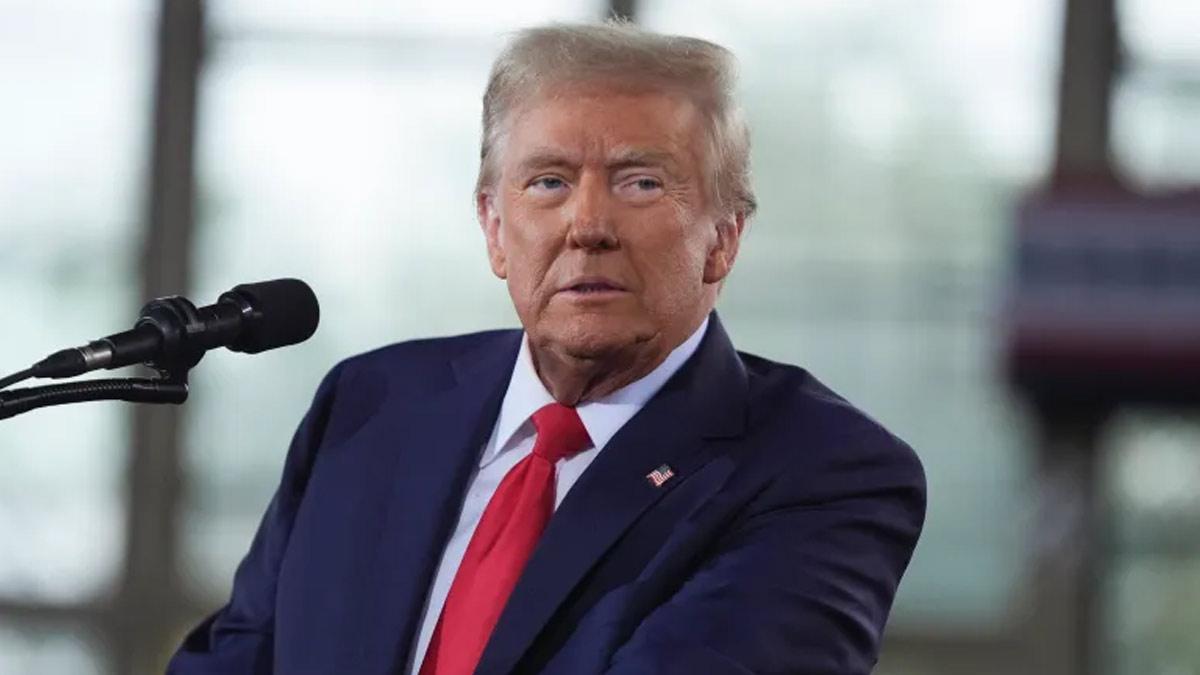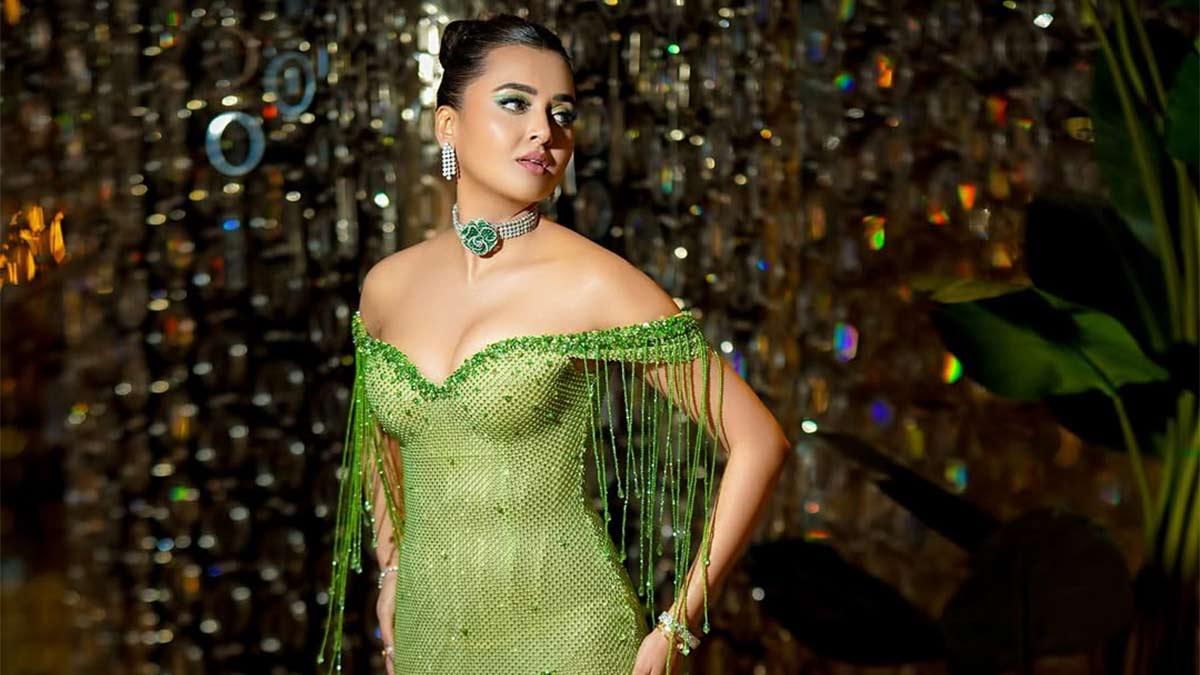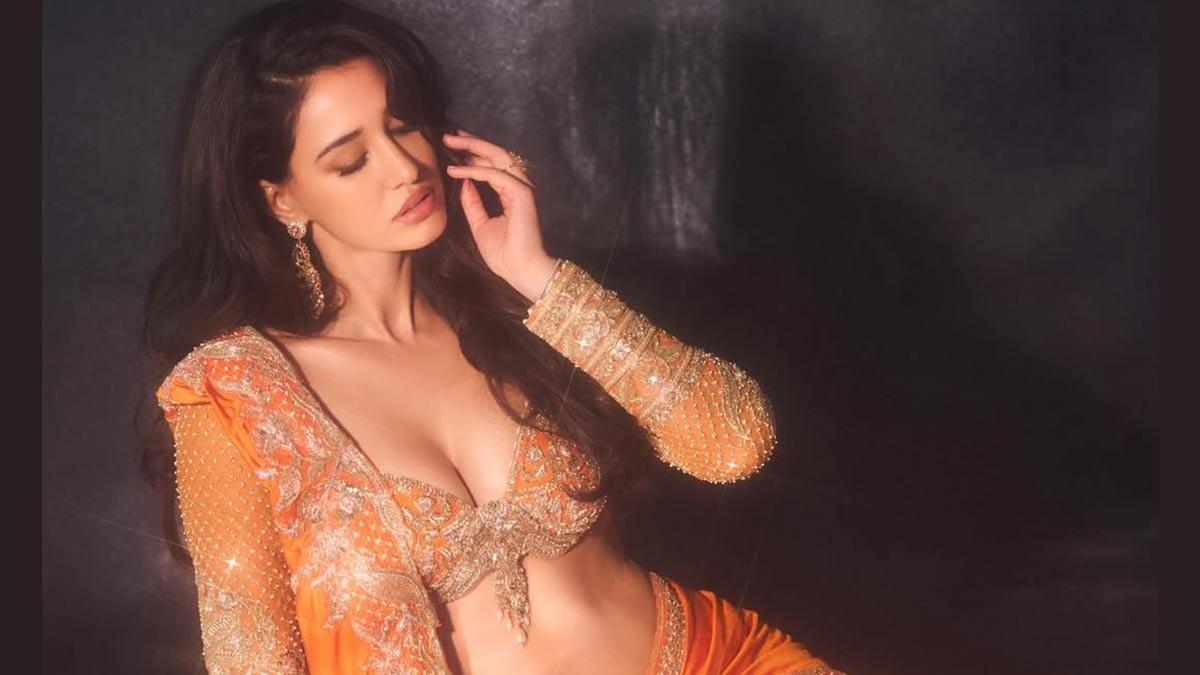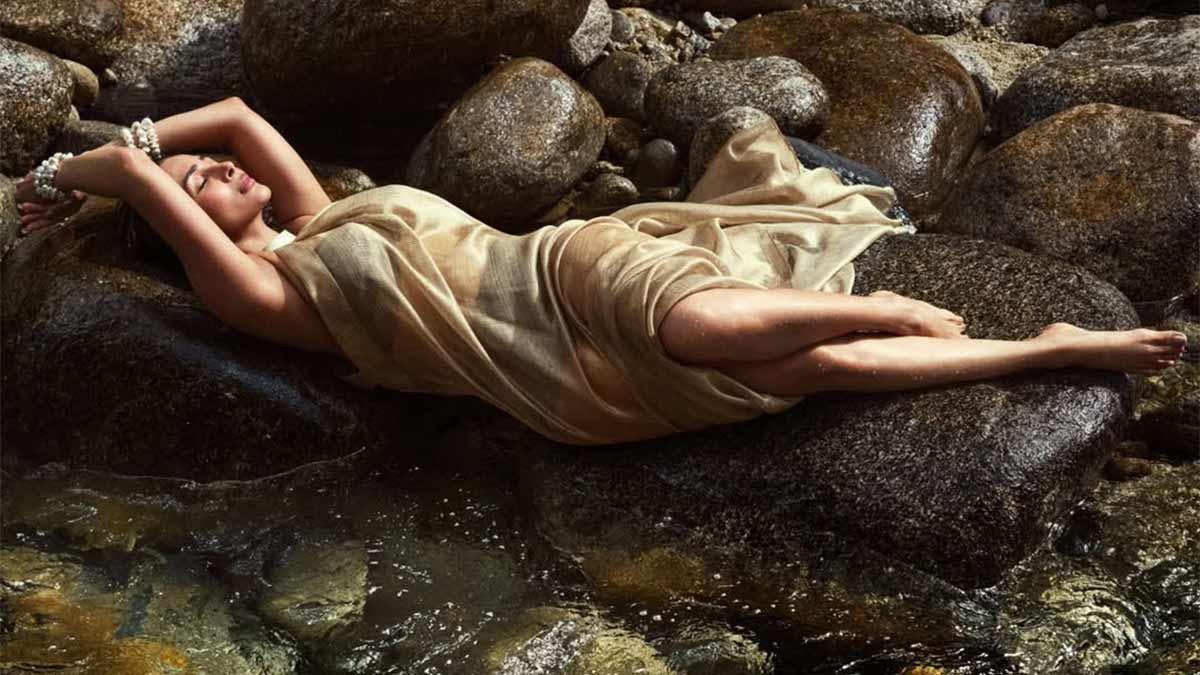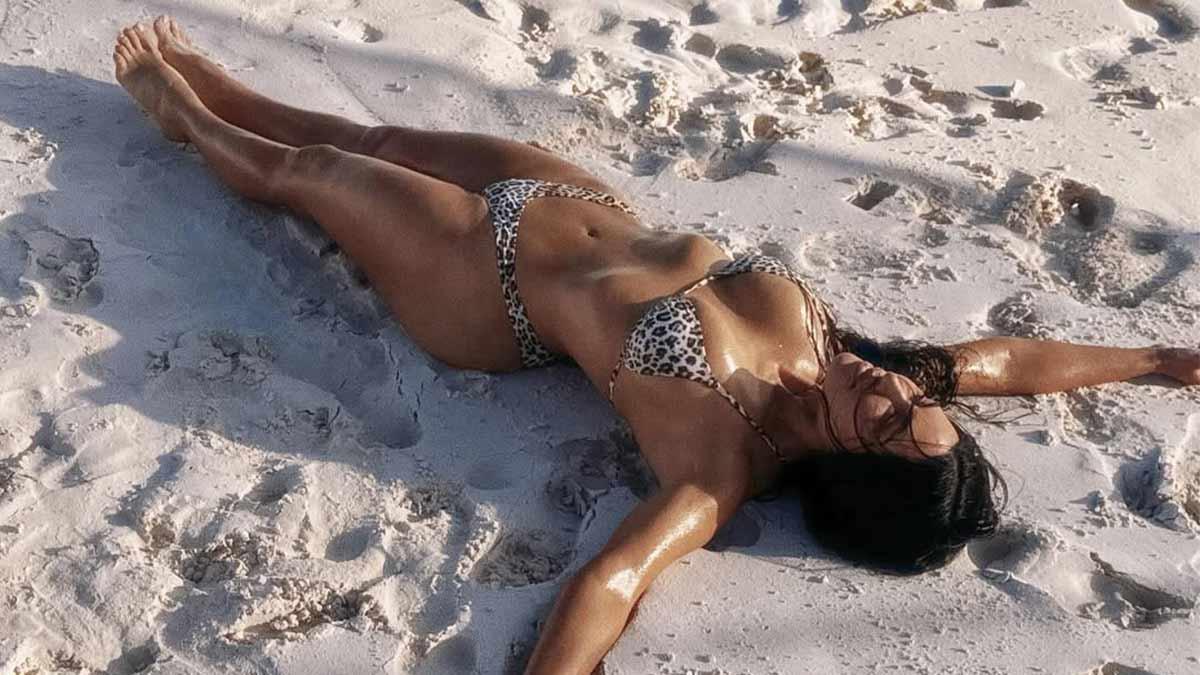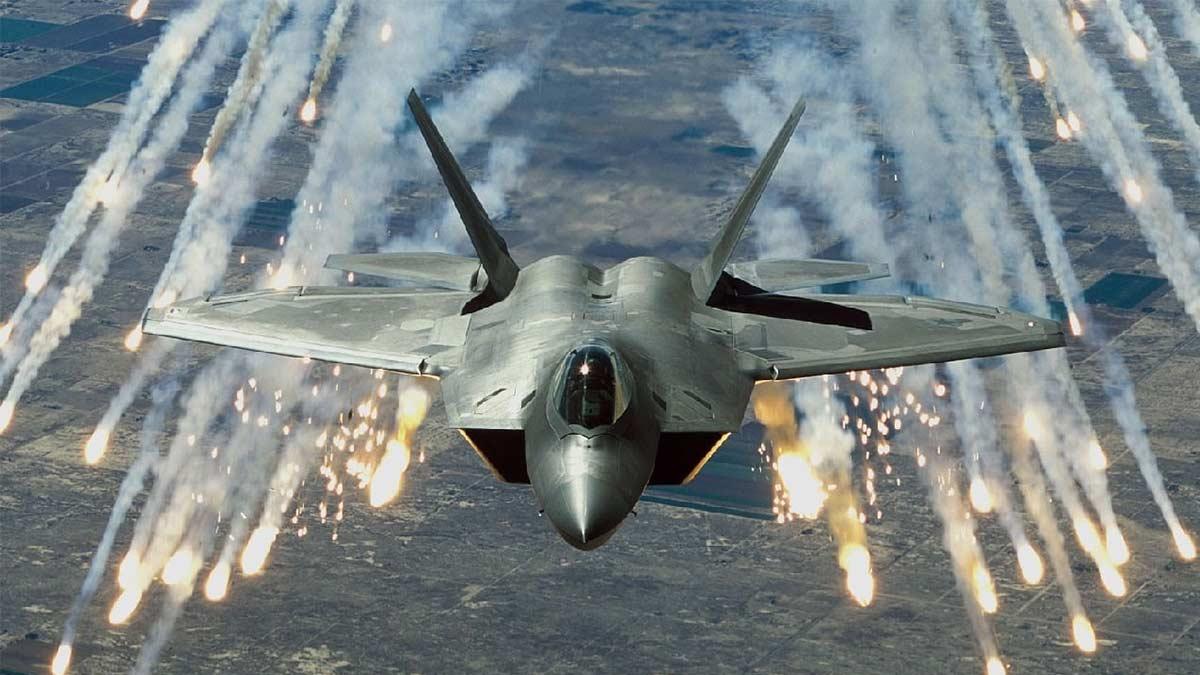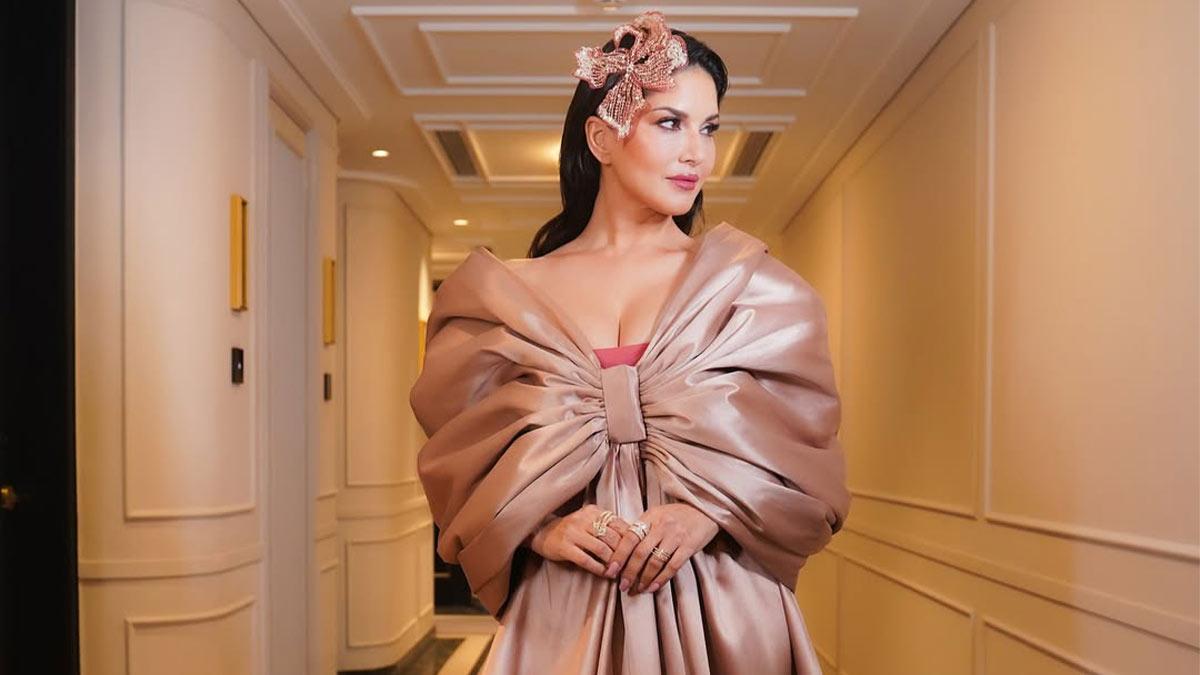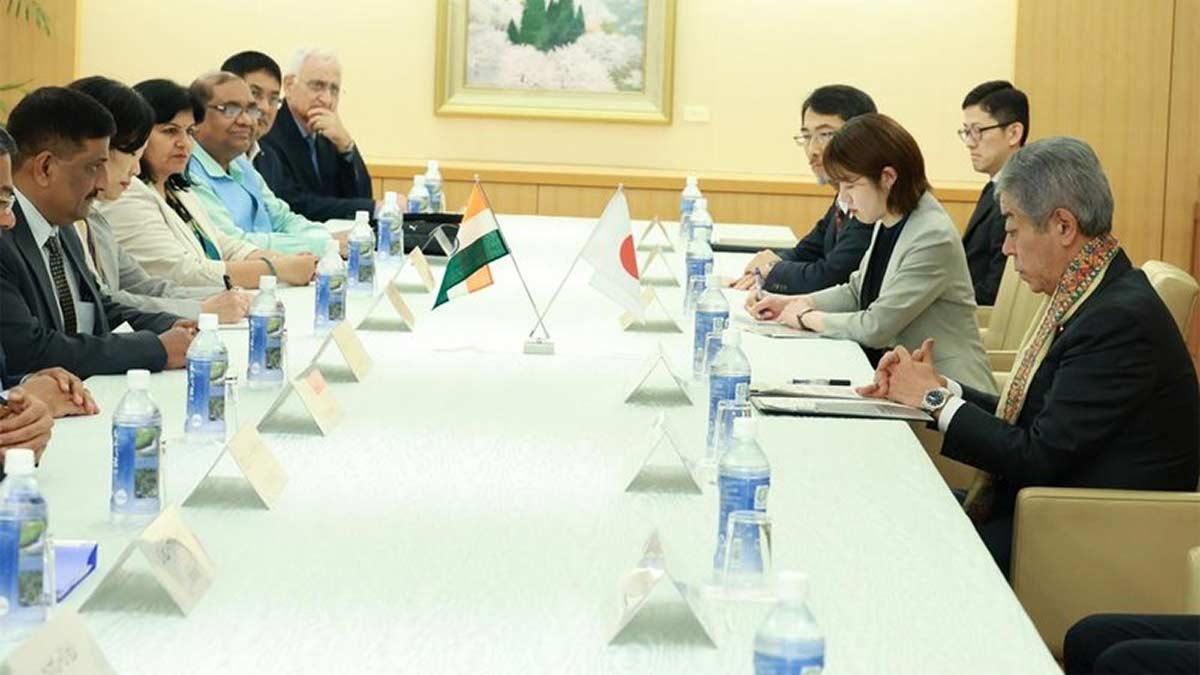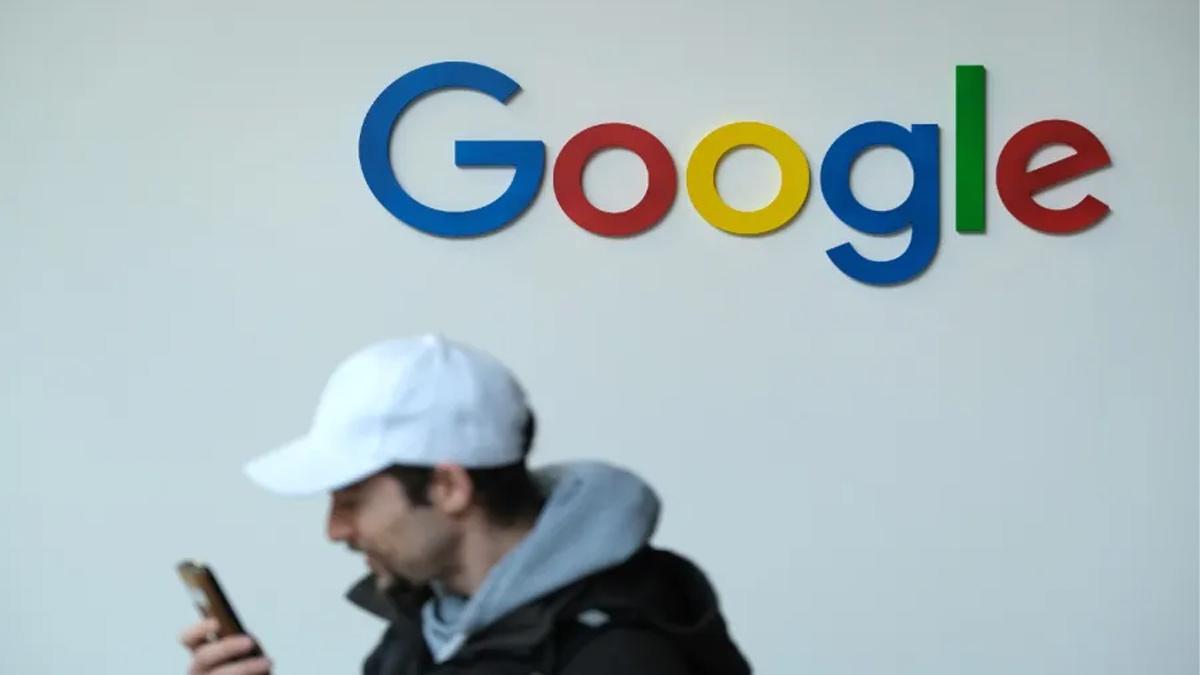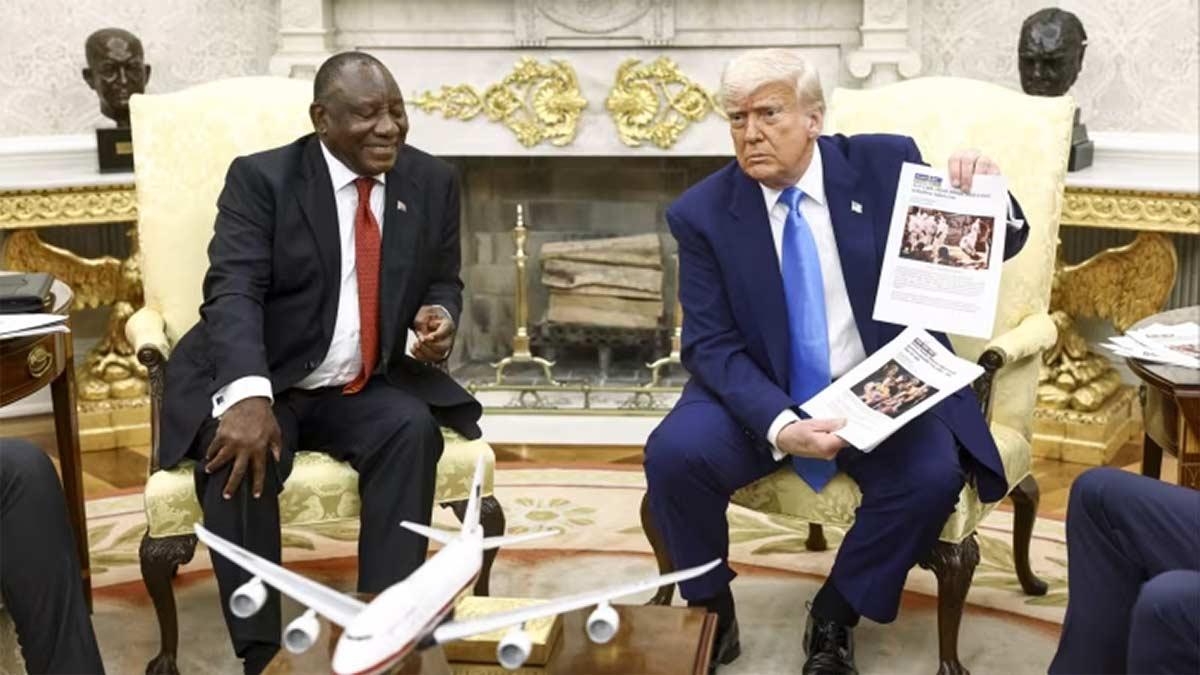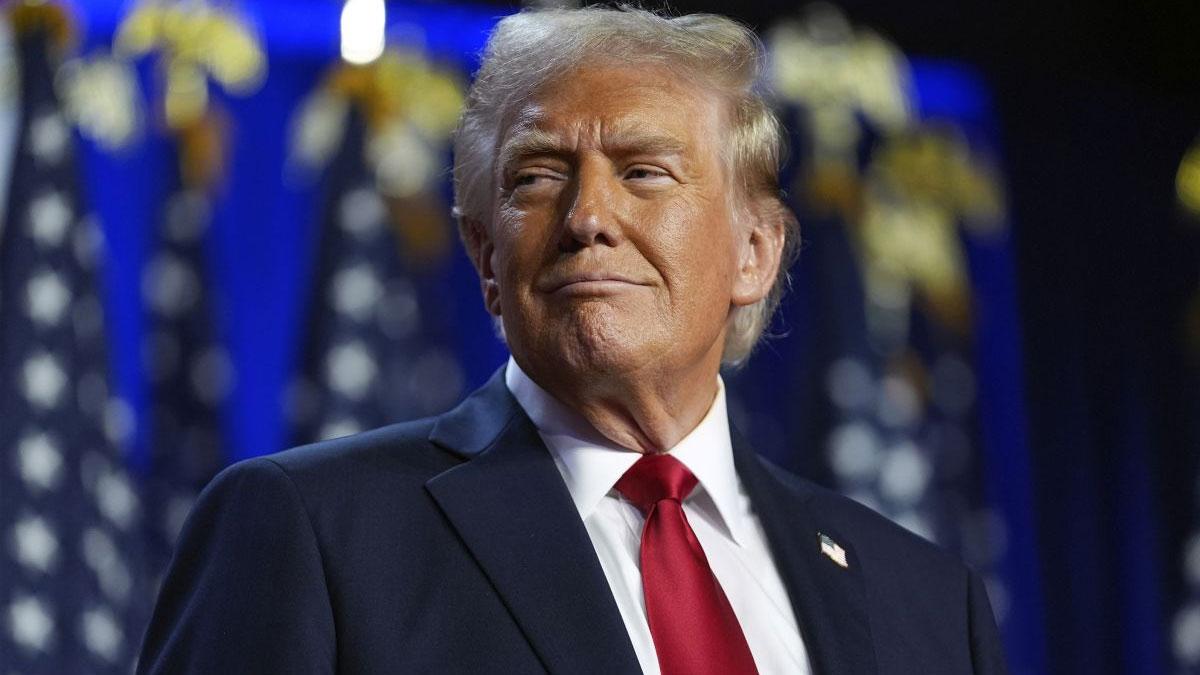In a dramatic meeting in the Oval Office on Wednesday, President Trump confronted South African President Cyril Ramaphosa with unverified allegations of a genocide against white Afrikaner farmers.
To make his point, Trump even had the lights lowered in the room to show that he referred to as video evidence of their purported persecution.
The session was expected to be tense, particularly because Trump has suspended all South African aid and issued an exception to his refugee ban for Afrikaners only, expediting their path to citizenship but keeping others locked out.
“We’ve had tremendous complaints about Africa, about other countries too, from people,” Trump said. “They say there’s a lot of bad things going on in Africa, and that’s what we’re going to be discussing today.”
What ensued was an eye-opening exhibition of Trump's worldview—that in his view, international politics is stacked against white groups, with minorities, especially Black groups, getting undue benefits. In the case of South Africa, this belief has grown to include genocide charges.
The conversation initially avoided the most contentious issues, and leaders spent time discussing golf and a few matters of foreign policy. President Ramaphosa had invited two South African golfers, Ernie Els and Retief Goosen, as a gesture to Trump's famous love for the game.
But the tone changed when someone inquired what it would take for Trump to change his mind regarding the alleged "white genocide" in South Africa.
Speaking on behalf of his president, Ramaphosa stated, "It will take President Trump listening to the voices of South Africans."
Trump reacted quickly, saying, "Turn the lights down and just put this on," to his aides.
A boisterous video montage thereafter played, with footage of individuals calling for violence against white farmers in South Africa. A specific segment showed white crosses along a country road, which Trump asserted were the graves of murdered white farmers. In actuality, they were set up by activists in opposition to farm murders.
As the video ended, and Ramaphosa was visibly surprised, Trump flipped through a pile of papers that seemed to record white victims of violence, chanting again and again, "Death, death, death."
The videos included a recording of the chant "Kill the Boer," a refrain usually quoted by U.S. diplomats and Afrikaner organizations as evidence of oppression against white South Africans. "Boer" refers to farmer in Dutch and Afrikaans.
Nonetheless, the ruling party in South Africa, the African National Congress, has long abandoned that slogan, which became popular through the leadership of another political group.
Ramaphosa replied that the video gave an incomplete and inaccurate picture of his country.
"We are a multiparty democracy in South Africa where people are free to express themselves," he explained to Trump. "Our government policy is absolutely against what he was stating."
While conceding that South Africa has serious crime issues, Ramaphosa's delegation pointed out that violence impacts all communities in general, and not white South Africans in particular.
"We were taught by Nelson Mandela that whenever there are problems, people need to sit down around a table and talk about them," Ramaphosa added.
While white South Africans have suffered violent attacks, police statistics do not suggest that they are more disproportionately victimized than other groups. On an economic level, white South Africans tend to do significantly better than Black citizens.
The showdown highlighted Trump's selective condemnation of human rights overseas. While highlighting purported mistreatment of white South Africans in a democratic country, only a week before, he paid visits to three Middle Eastern nations ruled by authoritarian governments and said explicitly that he would not denounce their treatment of citizens.
Read also| Macron's Snub of Bangladesh’s Yunus Leads to Trip Cancellation

